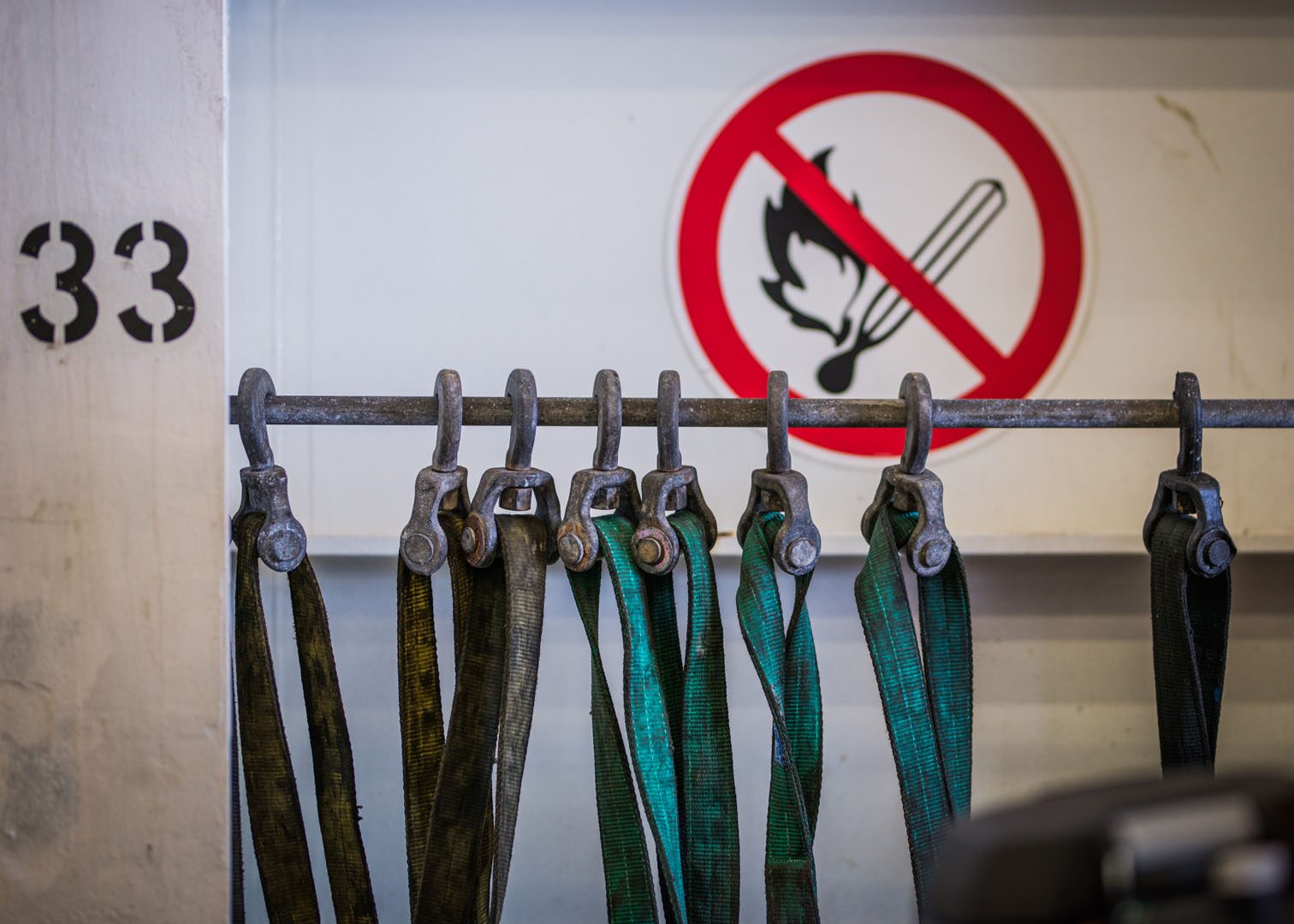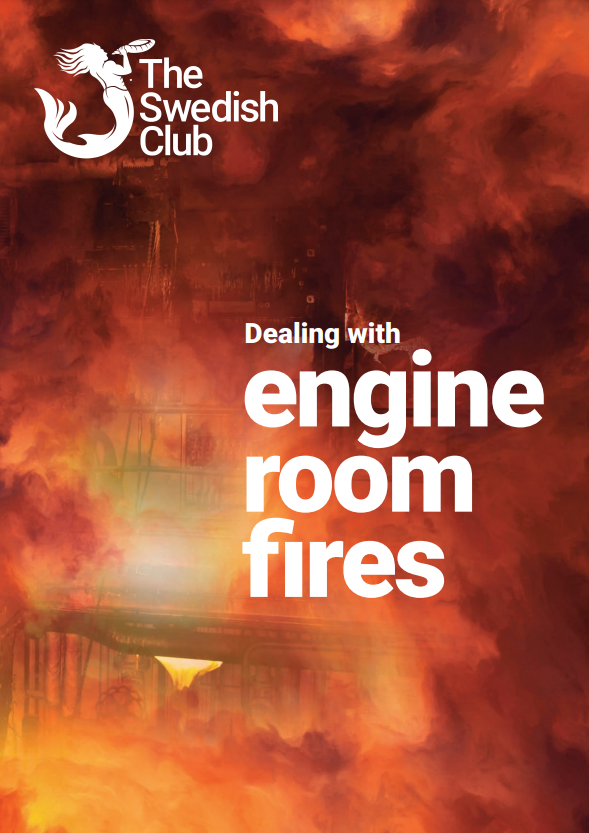
Fire & Explosions
Fire & Explosion
The variations on how a fire may start are many, but with a fire preventive attitude and training in accordance to procedures, the risk is minimised.
In an engine room a non-insulated hot area, leakage of oil and the air in the engine room itself is what it takes for a fire to break out. In cargo, a cigarette, cargo and abundant air can be the contributing factors.
Facts
- In 7 out of 10 cases fires occur when the vessel is on passage at sea.
- Only in one-tenth of the cases studied, did the fire occur during shipyard or drydock operations.
- Most fires start in the engine room and are, in 7 out of 10 cases, caused by fuel oil leakage or a short circuit of electrical equipment.
One-third of the fires originate from cargo spaces.
Preventive measures
Machinery spaces
- Keep a high general standard of cleanliness in the machinery spaces.
- Ascertain that there is no hazardous leakage of oil in the machinery spaces.
- All pipes and fittings should be routinely checked.
- All repairs that are carried out to oil pipes and fittings should be of a permanent nature.
- All high-pressure fuel oil pipes should be properly shielded.
- Ensure that insulation/lagging covers all hot surfaces.
- Ensure that all readily combustible materials are stored away only in designated areas.
- Regularly test that the quick-closing valves are functioning.
- The fire dampers must be functioning and regularly tested.
- Contactors and connections in electrical installations should be regularly checked. All repairs of electric equipment to be performed or supervised by qualified personnel.
- Test that the engine room fire alarm is working properly and be sure that the crew is well aware of the fire fighting and emergency procedures.
Cargo holds
- Smoking must never be permitted in areas where cargo is handled (hold, open hatchways, container, container stuffing area etc.).
- When carrying cargo with a tendency towards self-ignition monitoring of temperatures should be performed and unnecessary ventilation should be avoided.
- Stowing, separation and lashing of dangerous goods must be done according to the IMDG code.
- Securing of cargo on Ro-Ro decks must be arranged so that fire-fighting equipment is unobstructed during loading, discharging and on sea passage.
Read more

Dealing with Engine Room Fires
Engine rooms on ships have all the ingredients for a fire – oxygen, heat and flammable liquids under pressure. Not surprisingly, one of the dominating causes is lube-oil or fuel-oil mist spraying onto hot surfaces and then igniting. This Loss Prevention supplement gives an overview of the causes and advice on avoiding engine room fires. Through some actual cases, different scenarios are illustrated. Initially the study aims to put main engine damage claims into context by examining claims statistics for the Hull and Machinery (H&M) segment. It then examines in detail main engine damage claims – specifically frequency, vessel type, engine manufacturer, engine speed, damaged parts and cause of damage.